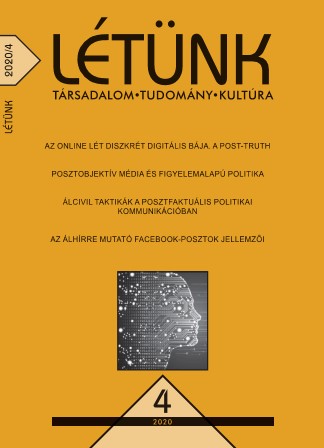A MÉDIAMŰVELTSÉG METAMORFÓZISAA HÁLÓZATOK KORÁBAN: HELYZETELEMZÉS A KÖZNEVELÉS SZEMSZÖGÉBŐL
Transformation of Media Literacy in the Age of Networks: Analysis from the Perspective of Public Education
Author(s): Csilla Herzog, Réka RacskoSubject(s): Media studies, Theory of Communication, State/Government and Education
Published by: Fórum Könyvkiadó Intézet
Keywords: media literacy; digital transformation; document analysis; Nat2020
Summary/Abstract: In the age of networks, media awareness is gaining a new meaning, as the media is pluralized, content consumption increases significantly due to information hunger (24/7), the competencies and abilities of the rising generations change significantly due to the pictorial turn. One of the key issues in the digital transformation is how we can use the internet, especially young people, safely, consciously, and in a value-creating way. (Digital Child Protection Strategy) Preparing for this also brings new challenges for education. The expectation of responsible behavior in the digital space sheds new light on the concept of media literacy. It adds several new elements, such as emphasizing negative phenomena in digital content consumption and their interpretation, explanation, and preventive development (e.g., cyberbullying, information overload, addictions, digital stress, human hacking). Our study aims to highlight the main features of digital and network culture resulting from digital transformation, the results of current surveys, changes in the content of the concept of media literacy, and new areas. In our research, we examine the currently valid Hungarian and EU strategies (Digital Education Strategy, Digital Child Protection Strategy, EU Digital Education Action Plan) and education regulation documents (Nat2020) using the method of content analysis and inductive coding to determine whether the concept of media literacy is metamorphic. With the entry into force of the new National Core Curriculum in Hungary, the subject of moving image culture and media literacy will be removed from the public education system. However, its content elements play an increasingly important role in the (digital) well-being of society.
Journal: Létünk
- Issue Year: L/2020
- Issue No: 4
- Page Range: 89-106
- Page Count: 18
- Language: Hungarian

